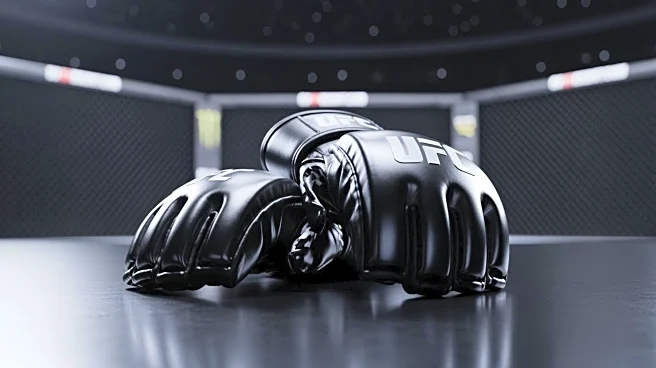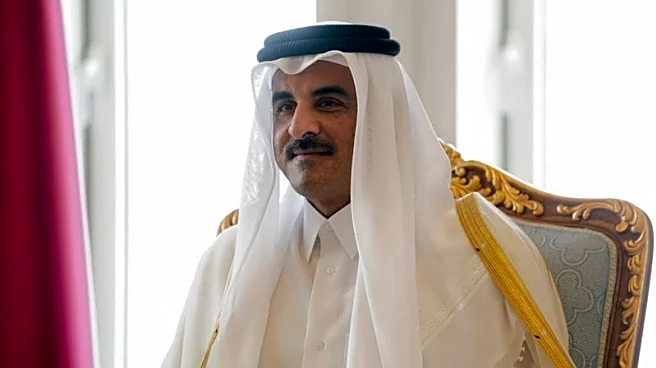What's Happening?
Tom Aspinall, the current UFC heavyweight champion, is set to defend his title against Ciryl Gane at UFC 321 in Abu Dhabi. Aspinall has been inactive for 14 months, despite being considered a potential opponent for Jon Jones, a prominent figure in UFC history.
Aspinall has indicated that his next opponent will likely be the winner of the bout between Alexander Volkov and Jailton Almeida, which is scheduled to occur before his own fight with Gane. Volkov is ranked No.4 and Almeida No.6 in the heavyweight division, while Gane holds the No.2 spot. Aspinall previously defeated Volkov in 2022. Aspinall's focus on the Volkov-Almeida winner suggests a strategic approach to maintaining his championship status by facing top contenders.
Why It's Important?
Aspinall's decision to target the winner of Volkov versus Almeida highlights the competitive nature of the UFC heavyweight division. This move could solidify his position as a champion who consistently faces top-ranked opponents, thereby enhancing his reputation and legacy within the sport. The potential matchups could also impact the rankings and future title contention within the division. Aspinall's avoidance of a fight with Jon Jones, despite the latter's high profile, suggests a focus on immediate, strategic challenges rather than high-profile bouts. This approach may influence other fighters' strategies and the dynamics of title defenses in the UFC.
What's Next?
Following the outcome of UFC 321, Aspinall's next steps will likely involve preparing for a fight against either Volkov or Almeida, depending on the results of their match. This could lead to a reshuffling of rankings and potential new rivalries within the heavyweight division. Aspinall's continued focus on top contenders may prompt other fighters to adopt similar strategies, potentially leading to more competitive and frequent title defenses. The UFC may also adjust its promotional strategies to highlight these emerging rivalries and maintain audience interest.
Beyond the Headlines
Aspinall's approach to selecting opponents based on rankings rather than fame could influence the cultural perception of UFC champions as athletes who prioritize merit over spectacle. This could lead to a shift in how champions are viewed and respected within the sport, emphasizing skill and strategy over celebrity status. Additionally, Aspinall's strategy may encourage a more meritocratic system within the UFC, where fighters are rewarded for their performance and ranking rather than their marketability.















